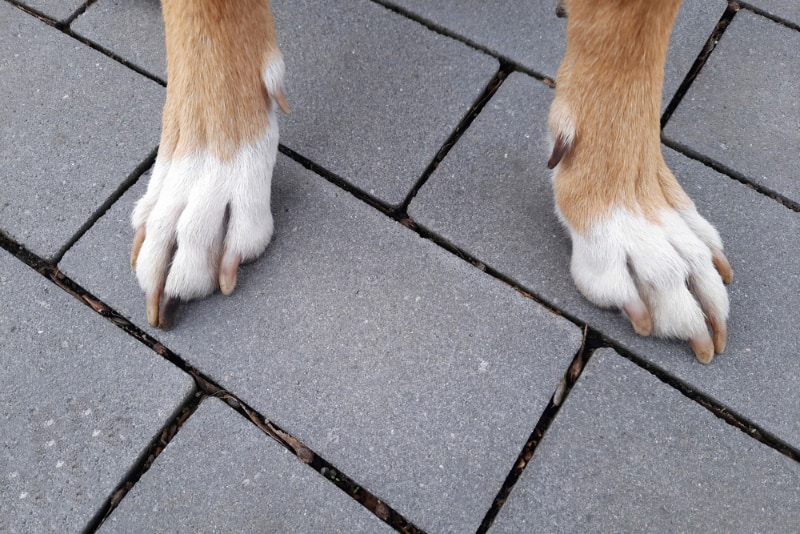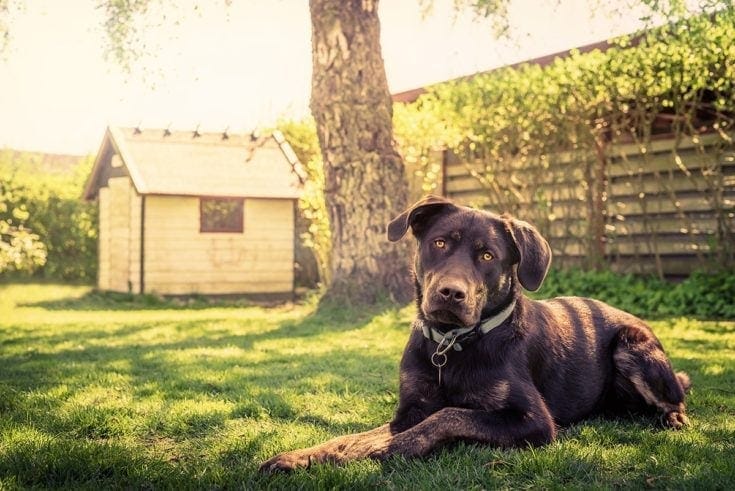Are Great Danes Aggressive? Vet-Reviewed Breed Temperament Facts

Updated on
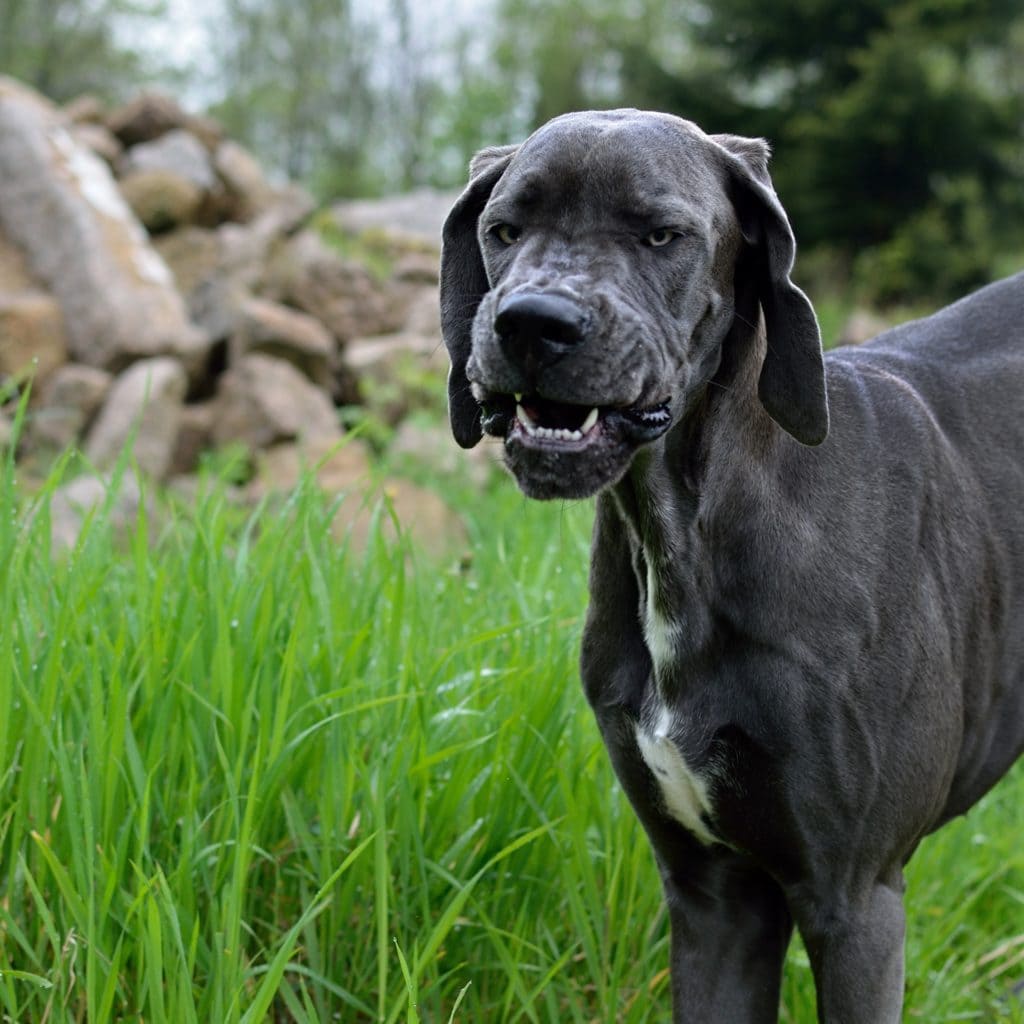
Click to Skip Ahead
Anytime you see a large dog, it’s only natural to wonder about their temperament. Whether you’re looking to get a Great Dane for yourself or you’re trying to gauge if your Great Dane’s behavior is normal, we’ll walk you through it all here.
The good news for Great Danes is that they’re usually not aggressive dogs. In fact, they’re well-known for their friendly, affectionate, and gentle demeanors, but that doesn’t mean they’re all super friendly. However, this oftentimes has very little to do with the breed itself and is dependent on the individual dog and their circumstances, background, health, training, socialization, and many other factors.
Please consult with your vet if you believe your dog is aggressive, as there is often an underlying health issue or cause of pain responsible for sudden changes in a dog’s behavior. Supervise your children and other people around your dog in order to avoid any misfortune and sometimes severe injuries. Consult with a professional canine behaviorist.
Are Great Danes Aggressive?
Generally, Great Danes are not aggressive dogs. Most Great Danes have a friendly and patient demeanor. So, while their giant size might make them look intimidating, they usually don’t have a personality that matches this appearance.
However, like all dogs, early training and treatment of a Great Dane have a big impact on their overall personality, so you shouldn’t just assume every Great Dane is friendly.
Factors That Affect a Dog’s Temperament
While most Great Danes are friendly, there are a few different factors that can go into their individual personality. We’ve highlighted three different factors that can affect your Great Danes temperament for you here.
1. Genetics
Great Danes, like the vast majority of dog breeds, have been bred and selected throughout history in order to pass on primarily desirable traits, including a friendly and gentle demeanor. If either of the parent dogs displayed aggressive traits, it increases the chances the offspring may too. It’s very important to breed dogs based on their appropriate body conformation and performed health and genetic tests, but also their positive demeanor and personality.
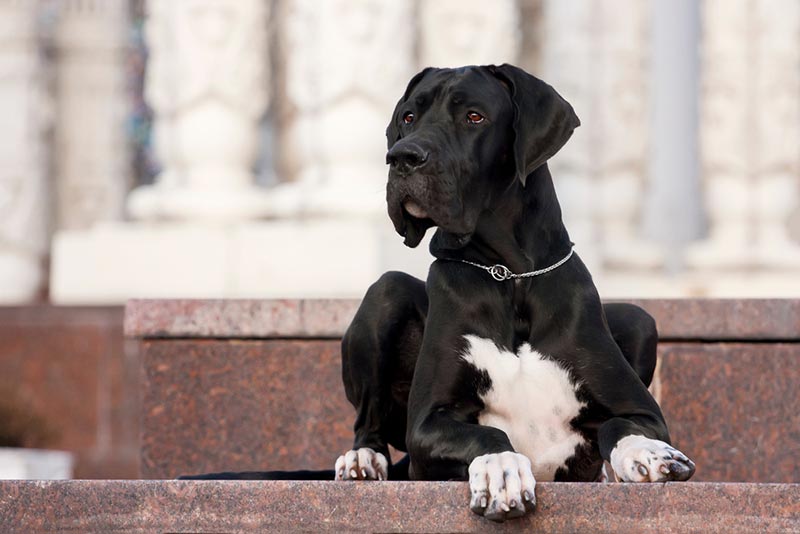
2. Their Environment
If you have an aggressive Great Dane, there’s a good chance that there was or is something in their environment that is helping to create this behavior. This could be something like an abusive past, or it could be because they’re not getting the exercise they need.
Ensure you’re meeting all the Great Dane’s basic care requirements and you can greatly reduce the chances of having an aggressive Great Dane.
3. Injury or Illness
If your Great Dane usually has a placid demeanor but now they’re starting to act out, they might be dealing with some injury or ailment. This is especially true if they’re acting out when you touch a certain part of their body.
If you suspect your Great Dane is hurt or sick, we recommend taking them to a vet for diagnosis and treatment as soon as possible.
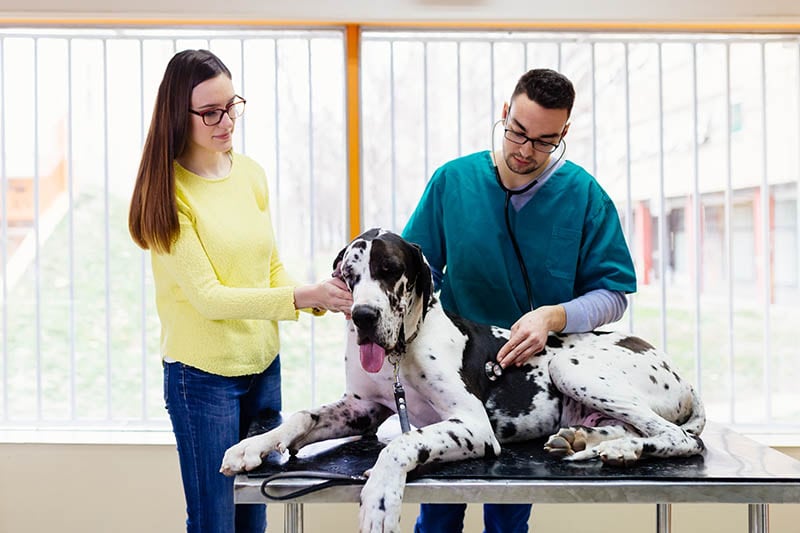
Tips for Stopping Dog Aggression
If your Great Dane is starting to display some aggressive tendencies, there are a few things you can do to try and get it under control. Below we’ve highlighted five tips to help you get your Great Dane’s aggression in check.
Before proceeding with these steps, it’s important to identify the exact cause for this behavior and to seek the help from professionals, such as a veterinarian and a certified canine behaviorist. Firstly, your vet needs to rule out an underlying health issue or injury, as otherwise, your efforts to manage their behavior may not be successful and could even be detrimental to your dog’s health and welfare. Next, if your dog did get a clear bill of health, find a dog behaviorist and try to follow the next steps, but only if you feel comfortable doing so.
1. Give Them Enough Exercise
A lot of times, dogs display aggression and other negative behaviors simply because they’re not getting their energy out in other ways. If you can, get your Great Dane out and give them plenty of chances to move and play. Whether it’s long walks or a chance to run around an open field, a little extra exercise for your Great Dane can go a long way.
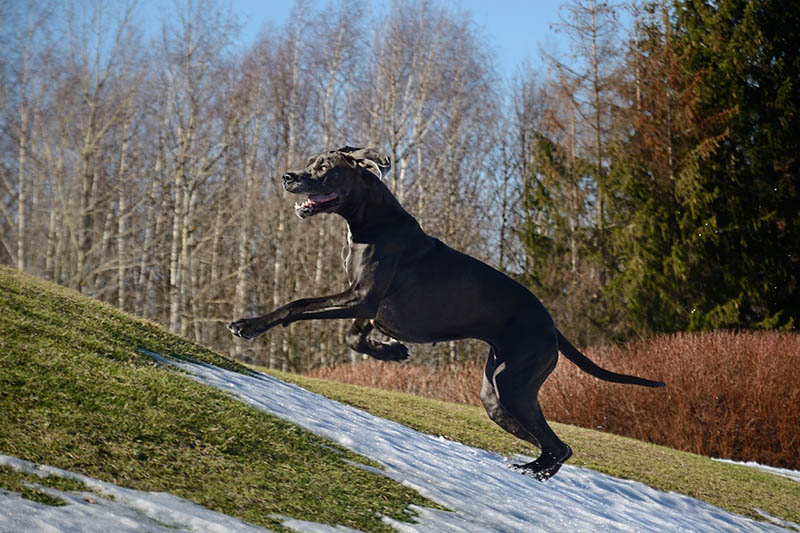
2. Stay Calm
The more you work yourself up, the more your Great Dane can feel it. If you stay calm, you greatly increase your chances of calming down your Great Dane.
Meanwhile, if you’re running around, yelling, or acting out in other ways you’re escalating the situation, and there’s a good chance your Great Dane will respond by escalating themselves.
3. Use Positive Rewards
When your Great Dane is acting out, the last thing you want to do is start yelling at them, hitting them, or using any kind of negative reinforcement. This only makes them dig in on their aggressive behaviors. Instead, you want to reward your Great Dane when they don’t display these behaviors.

4. Train Often and Stay Consistent
To get the most out of your Great Dane, you need to build a strong bond with them and teach them that they should listen to you because it’s fun and they will get a reward in the form of food, toys, attention, or praise. Nothing quite gets this point across like training sessions. Teach them new things and train them often and consistently.
These repeated training sessions will help your Great Dane bond with you and trust you, which will help them listen to your verbal commands when you want them to calm down.
However, it’s also extremely important to recognize the situations in which your Great Dane is not feeling comfortable and to ensure they are not forced into them. If they need to take a step back, that is fine. It may take time to build up their confidence toward a certain circumstance, and pushing them may make them feel cornered, leading to aggression. Respect your dog’s personal space and teach the people in your circle how to behave around them. Avoid loud noises and excitement, and allow your dog to set the pace.
5. Get Professional Help
If you don’t feel safe around your Great Dane or you can’t get some of their aggressive tendencies under control, then you need to seek out a professional. A professional trainer can work wonders with your dog, and they can teach you everything you need to know to work on things at home.
Don’t keep trying to figure it out on your own. If your Great Dane is displaying aggressive behavior, get the help you need before they lash out and hurt someone.

Final Thoughts
While most Great Danes are extremely friendly and loyal, don’t take that for granted, and don’t assume that any Great Dane you come across is friendly. They make great companions, but it’s always important to get to know the specific dog since they all have their own personalities and characteristics you need to get to know.
Featured Image Credit: Jumpstory




